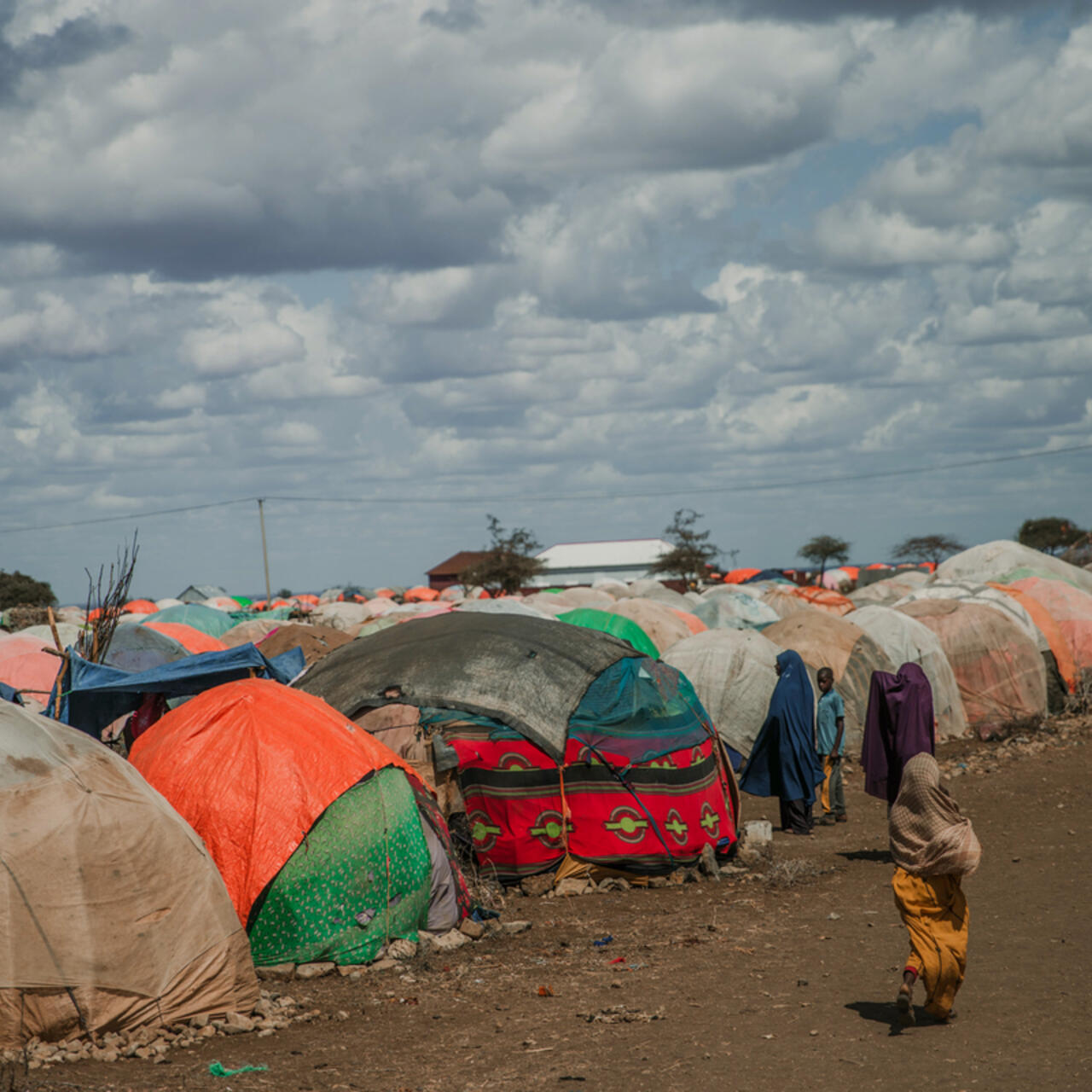
In their own words: displaced by drought in Somalia
Meet the people on the frontlines of the devastating crisis.

Meet the people on the frontlines of the devastating crisis.
Families across Somalia have had their lives uprooted by a catastrophic hunger crisis that could soon be declared a famine. A prolonged drought has devastated crop production and made it near impossible for herders to find food for their animals.
While Somalia is facing its fifth consecutive failed rainy season, this is no “natural disaster.” Human-caused climate change has increased the frequency and severity of droughts, and decades of conflict have significantly eroded the country’s ability to respond to crises.
People are facing impossible choices to get by. Many have little option but to leave their homes to seek safety and assistance at established camps, in cities, or across the border in Kenya and Ethiopia. Hundreds of thousands of people are currently on the move, with many ending up in camps that are still filled with those who were displaced during famines in 2011 and 2017.
We spoke to some of the people forced to flee their homes in September, shortly after the IRC arrived to start work in the camps. Facing some of the most difficult conditions imaginable, below, they gave an insight into their lives.
Photography by Martha Tadesse for the IRC
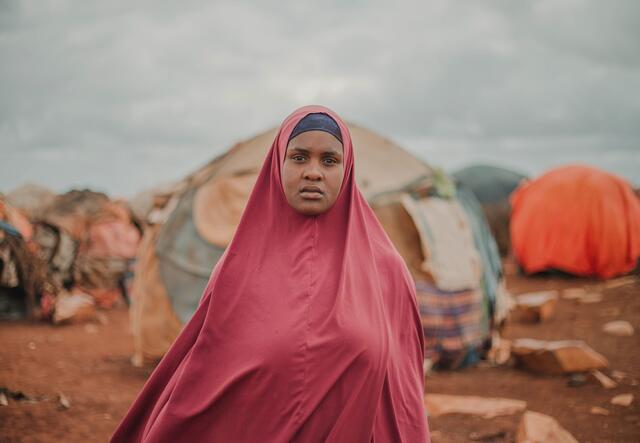
Amina Sayid, 24, is among the 3 million people in Somalia who have left their homes to seek relief from drought and conflict. She arrived in Torotorow displacement camp in April, only to face disappointment.
"There is no water and no restrooms,” she says. “We haven't received any food, either."
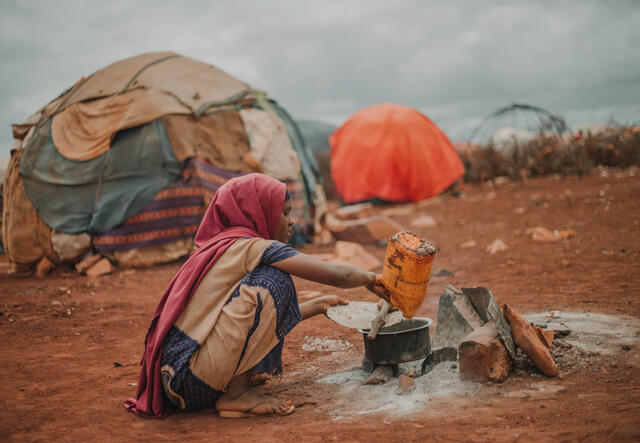
Amina cooks the little food she has outside of her tent in Torotorow camp. With poor rains set to persist into 2023, even more Somalis will be unable to access enough food. Growing numbers of people are forced to sell off assets, including livestock and possessions, pull their children out of school or make other decisions that sacrifice their future to afford food today.
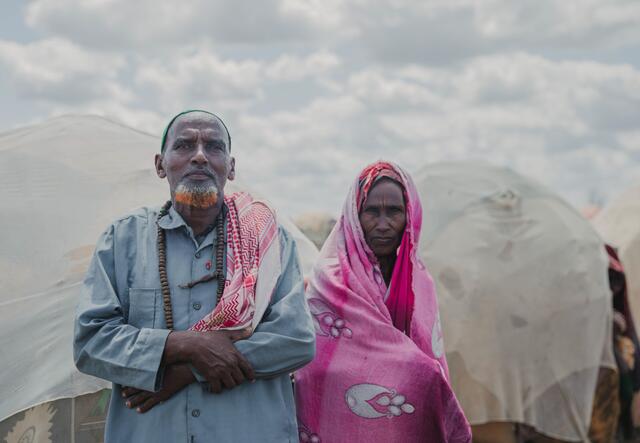
Farmers Mohamed Hassen, 71, and Madina Omar, 70 have not seen rain for four years. The record dry conditions have destroyed their crops. They moved to the Daryel Shabellow camp in September to escape the impacts of the drought.
"We lost everything at home, but we also don't have anything here," Madina says.
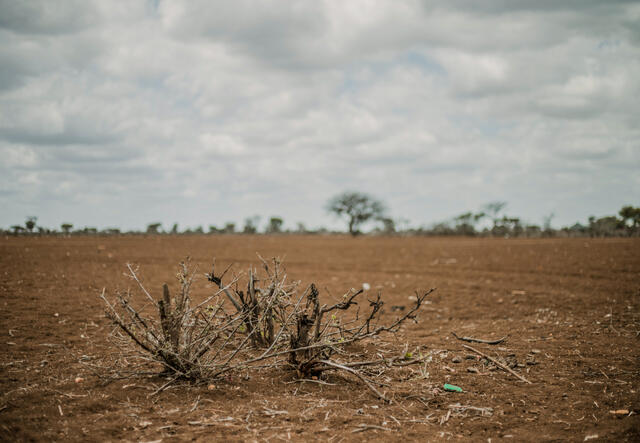
Barren farmland in Baidoa, Somalia. Human-caused climate change has increased the frequency and severity of droughts across East Africa.
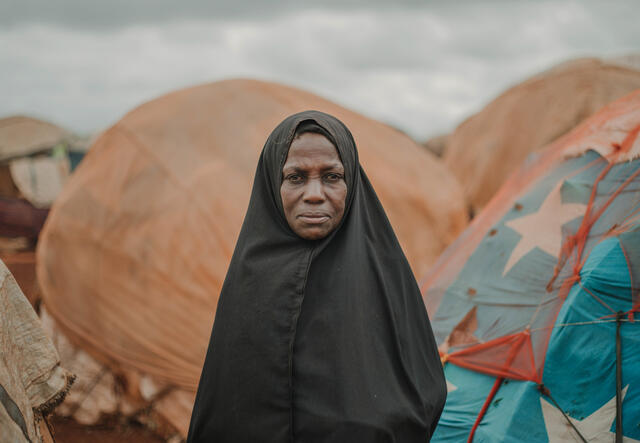
Nunay Hassan, 52, a farmer, left for the Torotorow camp when the drought hit.
“In this camp, there is no water,” Nunay says. “To get water, we go to the local village and buy it there.”
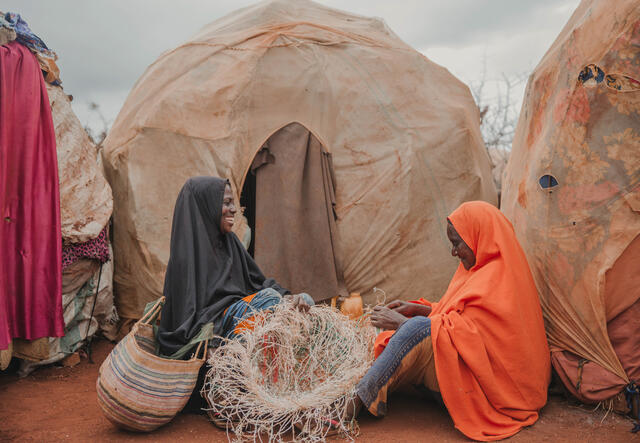
Nunay sits with Bisigow Mohamed, 50, another farmer from her home village.
“Back home, we were friends. We both worked as farmers. We lived close to each other. Here, we make these baskets to sell in the market so we could get some cash for food,” she explains.
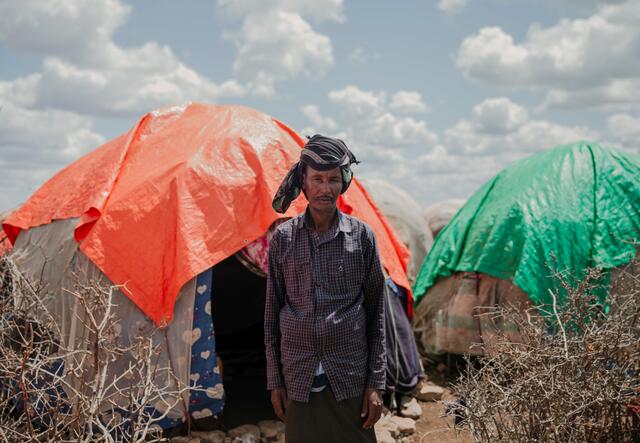
“It has not rained in my village for more than three years, so we came here looking for food," says Makus Hassan, 63. Makus and his family walked for a week before arriving at the Daryel Shabellow camp in Baidoa a month ago.
"We had 20 goats, but we lost five [while walking to the camp]. Water and food are not available here. We don't have any restrooms. Although there is a mobile health clinic, it is closed at night."
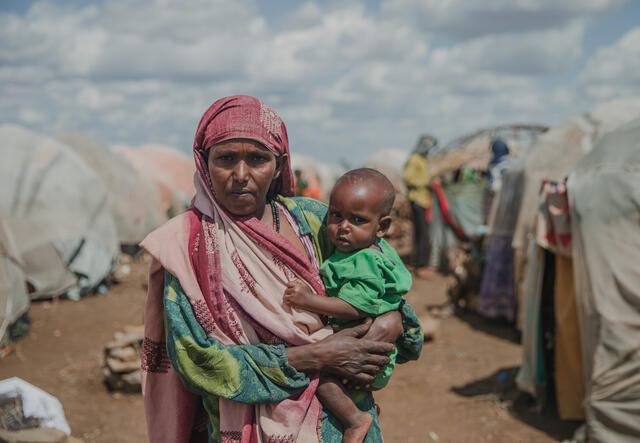
Owliyo Mohammod, 40, holds her 1 year old daughter, Hassen Moalim. The family lives in the Daryel Shabellow camp, where they moved in July.
In the midst of a hunger crisis, children’s bodies are weakened from a lack of nutrition, making them more susceptible to common diseases. Owliyo’s husband recently left the camp to try and find work to provide for the family.
“We are farmers who left home because there was no rain, Owliyo says. “There is no food here. Water is difficult to access.”
The IRC has worked in Somalia since 1981, where we currently support communities affected by drought and conflict in Galmudug, Southwest and Puntland states, as well as in the Banaadir (Mogadishu) region. Since March 2022, our programmes have reached 400,785 people in these areas.
The IRC’s staff in Somalia are scaling up our programmes to address the current drought and rising food insecurity, including expanding to new areas to meet severe needs. We provide health, nutrition, water and sanitation services; women’s protection and empowerment programs; and cash assistance to drought-affected populations across the country. This includes a number of health centres in and around camps, run jointly with our local partner GREDO.
Read about why Somalia ranked number one on the IRC’s 2023 Emergency Watchlist.